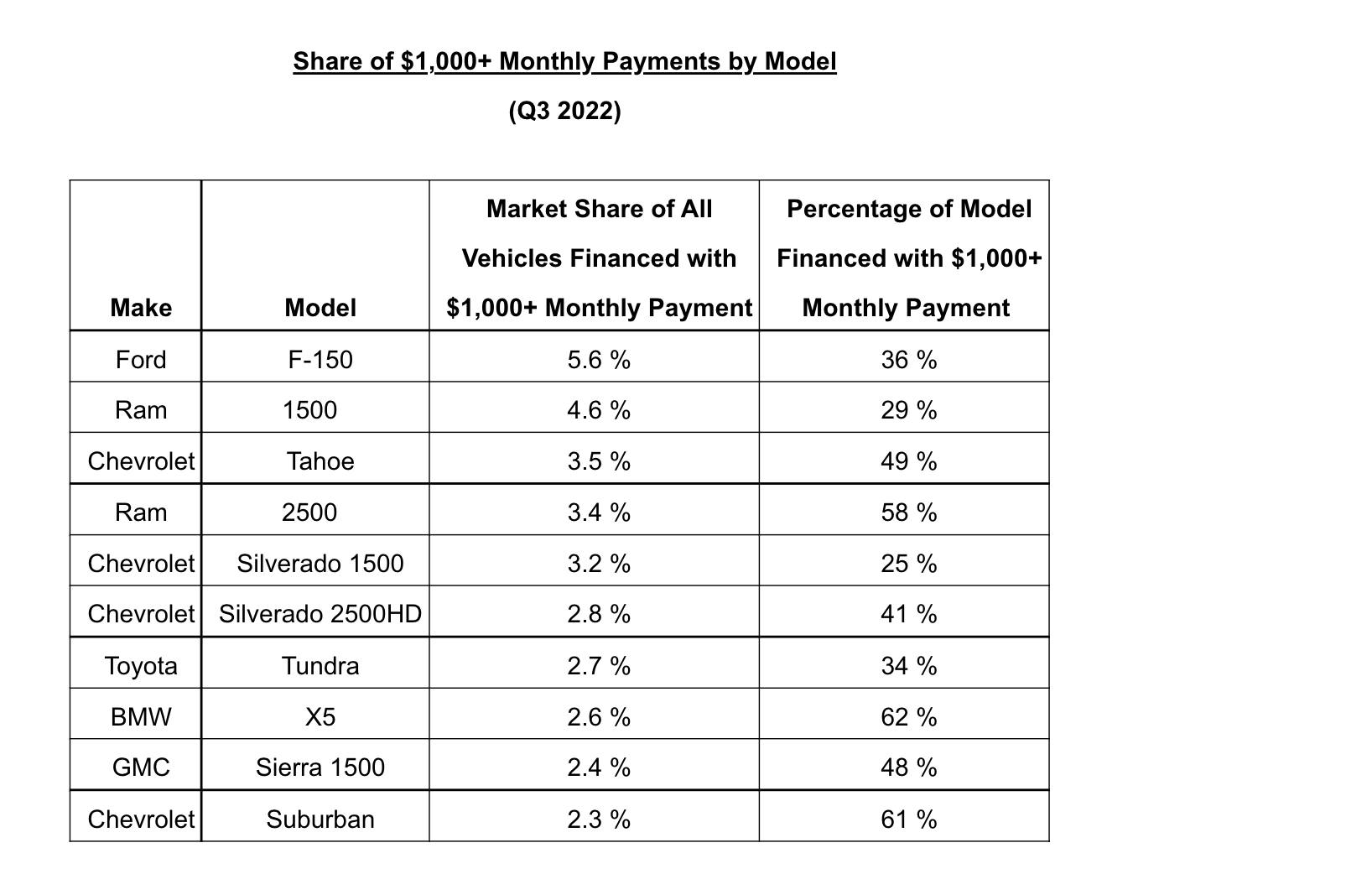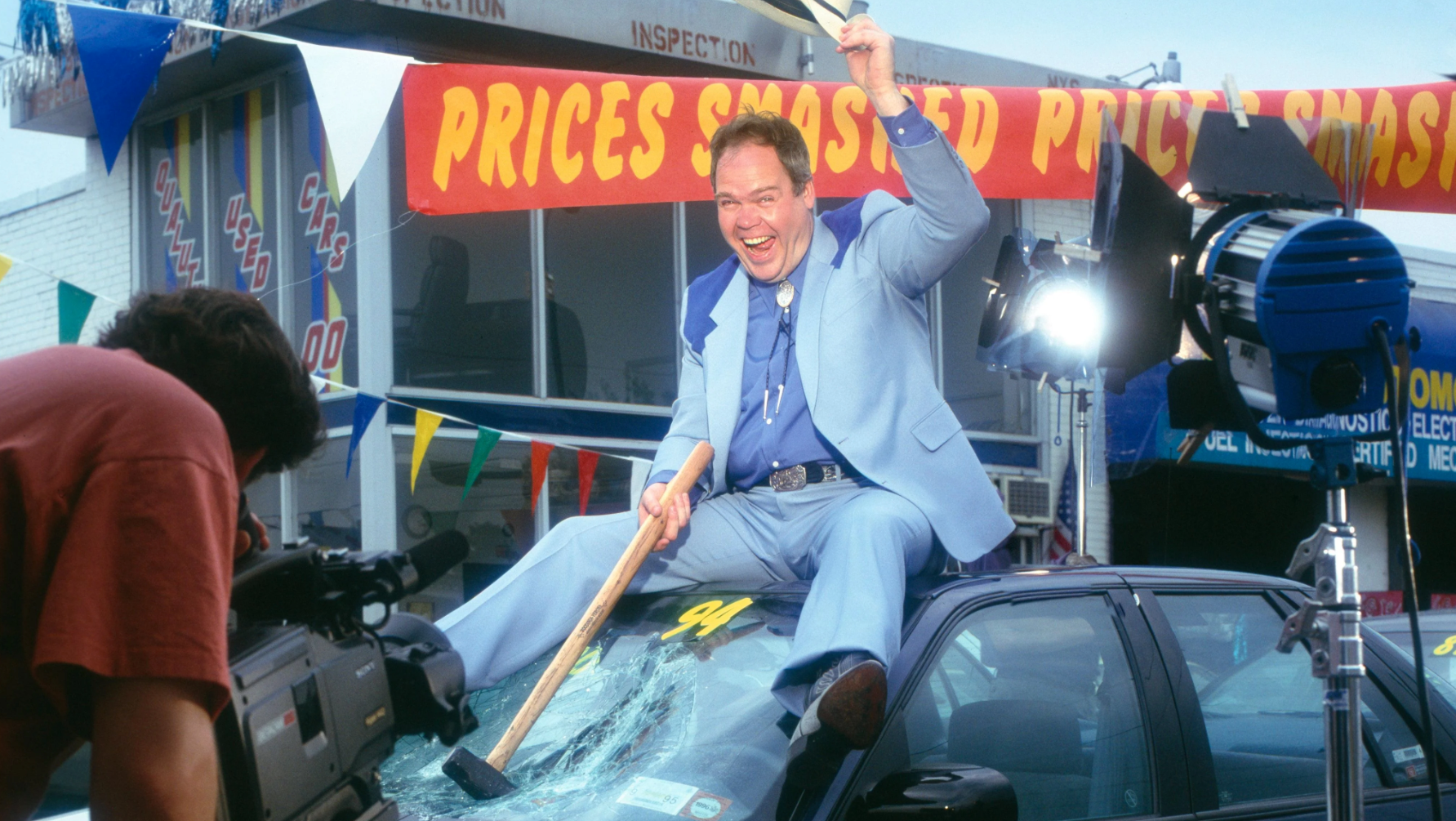A Lot Of You Are Paying More Than $1,000 A Month For Your Car And It's A Little Worrying
Auto loan interest rates are also higher than they've been since 2019, according to a new report.
Edmunds, which is an automotive analytics and data firm, has a new report out, which says that the average monthly payment for new cars is now more than $700, which is completely ridiculous. This is in part because car loan interest rates are also the highest they've been in years. A little over 14 percent of buyers even have monthly payments over $1,000, according to Edmunds, which Edmunds says is the highest number on record and is frankly worrying.
Now, it's true that because of long-term inflation everything costs more, and a lot more to us Old Millennials, who might still, somehow, expect one's car payment to be $200-$300 a month, at most. But that simply isn't reality in 2022, with cars costing more but also automakers simply not selling a lot of small, affordable cars, in favor of $40,000-$50,000 SUVs and trucks. In that sense, big car payments aren't surprising, though, still, over $1,000? Sheesh.
In a release, Edmunds also notes that, yes, people with the biggest payments tend to be luxury customers, though there are a couple of truck brands in that crowd as well:
More than 1 in 4 consumers who financed an EV committed to a monthly payment over $1,000. 26% of consumers who financed an EV committed to a $1,000+ monthly payment, compared to 24% of consumers who financed a plug-in hybrid, 14% who financed a gas-engine-only vehicle, and 4% who financed a hybrid vehicle.
Two mainstream brands known for their popular truck offerings made it to the top 10 list of makes that commanded the greatest share of $1,000+ monthly payments. Though luxury brands dominate the list, GMC earned a No. 7 spot with 41% of its shopper base committing to a $1,000+ monthly payment and Ram took the No. 10 spot with 36% of its shopper base committing to a $1,000+ monthly payment. The full list of makes ranked by share of $1,000+ monthly payments can be found below.
Large trucks and large SUVs dominated the top 10 list of models that commanded the greatest share of $1,000+ monthly payments. Ford F-150, Ram 1500 and Chevrolet Tahoe captured the highest percentage of monthly payments over $1,000. The Ford F-150 made up 5.6% of all new vehicle loans made in Q3 with a $1,000+ monthly payment. The top 10 list of models ranked by share of $1,000+ monthly payments can be found below.
States with consumers that favor large truck purchases are leading the country in the greatest share of $1,000+ monthly car payments (infographic available). Wyoming, Texas and Utah had the greatest percentage of new-car shoppers who agreed to a monthly payment over $1,000 (25.7%, 20.8% and 19.1%, respectively).
Separately, Edmunds offers the following table, which I'll confess to not completely understanding, though it does seem to say that 58 percent of Ram 2500s are financed with loans with payments above $1,000.

Now, personal finance people — some of them even call themselves experts — generally recommend that your car not take up more than 15 percent of your take-home pay, meaning $600 a month if you make $4,000 a month, or lesser or higher amounts depending on your income as the case may be. And while I can imagine that a lot of BMW X5 buyers make the kind of money that might justify a payment over $1,000 a month, I can also imagine that a lot of F-150 buyers don't.
And while Edmunds doesn't go into it, I also wonder how many of the people who don't have payments over $1,000 a month have cheaper payments because they've opted to take out longer-term loans, including some that are 96 months, which is eight years, which is batshit. A car loan is also borrowing money to buy a depreciating asset and, well, all of this stresses me the hell out.
